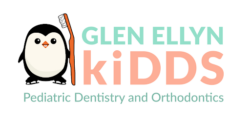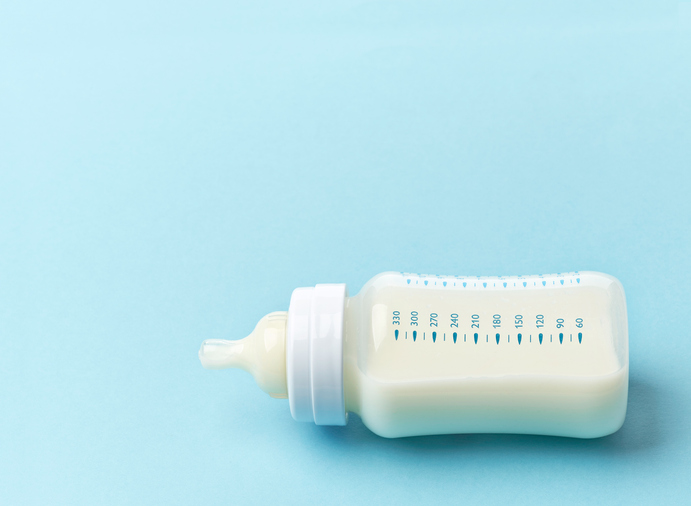Baby Bottle Decay: What Parents Need To Know
Posted on November 23rd, 2024 | Christopher Neal
Baby bottle tooth decay is a preventable condition that can affect young children and threaten their oral health. As parents, we all want the best for our kids, including their smiles. While baby teeth may be temporary, they play a crucial role in a child’s smile development and overall well-being.
At Glen Ellyn kiDDS Pediatric Dentistry and Orthodontics, we help parents understand how to protect their children’s teeth. Continue reading to learn all about baby bottle tooth rot and how to prevent it.
What Is Bottle-Linked Tooth Decay and How Does It Harm Baby Teeth?
Baby bottle tooth decay, also known as baby bottle rot, is a condition that usually affects infants and toddlers. It shows up as brown or black spots on your child’s teeth, often starting on the upper front teeth.
While it might seem like a minor issue since these are “just baby teeth,” the harmful impact can be significant and long-lasting. Even though baby teeth do eventually fall out, they serve several important purposes:
- Guide permanent adult teeth into correct position
- Help with speech development
- Ensure proper chewing and nutrition
- Encourage proper jaw development and bite alignment
- Build your child’s confidence through a healthy smile
What Causes Tooth Decay in Baby Teeth?
Sugars in popular kids’ beverages combine with bacteria in the mouth to create acids that attack tooth enamel. When your child consumes them frequently or these liquids pool around the teeth during sleep, they can cause rapid decay.
There are several specific behaviors that are linked to bottle rot in babies and toddlers:
- When children fall asleep with a bottle containing milk, formula, or juice it results in prolonged exposure to sugar.
- Using pacifiers dipped in sweet substances like honey or milk also exposes teeth to sugar for long periods. It should be noted that infants under age 1 should not ingest honey due to serious health risks.
- Drinking from sippy cups with sugary drinks throughout the day can lead to tooth decay since they act almost as a bottle.
- Saliva transfer can spread cavity-causing bacteria from the mother to the child. For example, cleaning off a pacifier by putting it in your mouth can expose the infant to harmful oral bacteria.
- If a child doesn’t receive teeth cleanings after feedings (such as with a damp cloth or infant toothbrush) it can lead to poor oral hygiene.
Warning Signs of Baby Bottle Tooth Decay
Watch for these early indicators of tooth decay:
- White, brown, or black spots on teeth
- Bad breath
- Swollen or irritated gums
- Trouble talking
- Your child cries or shows signs of pain when eating
How To Prevent Baby Bottle Tooth Decay
Protecting your child’s smile from decay is easier than you might think. Here are proven prevention strategies:
Feeding Practices
- Never put your baby to bed with a bottle
- Avoid filling sippy cups with sugary drinks and opt for water instead
- Stop bottle feeding by age 1 and help your child transition to drinking from a cup or sippy cup
- Clean your baby’s teeth and gums after each feeding with a soft, damp cloth or infant toothbrush
- Provide healthy, balanced meals and limit sugary snacks
Professional Care
- Schedule your child’s first dental visit no later than their first birthday
- Maintain regular dental check-ups every 6 months
Partner With Glen Ellyn kiDDS for Your Child’s Dental Care
At Glen Ellyn kiDDS Pediatric Dentistry and Orthodontics, we’re committed to helping families maintain healthy smiles. Our experienced children’s dentists specialize in making dental visits fun while providing comprehensive care to prevent and treat conditions like baby bottle tooth decay.
Don’t wait until you notice signs of decay. If you’re concerned that bottle rot could affect your child’s smile, cavity prevention is always better than treatment. Schedule an appointment with our team at Glen Ellyn kiDDS today. Conveniently located in Glen Ellyn, IL, we serve families throughout the nearby suburbs.
Remember, every smile starts with baby teeth. Let’s work together to keep your child’s smile bright and healthy from the very beginning!









